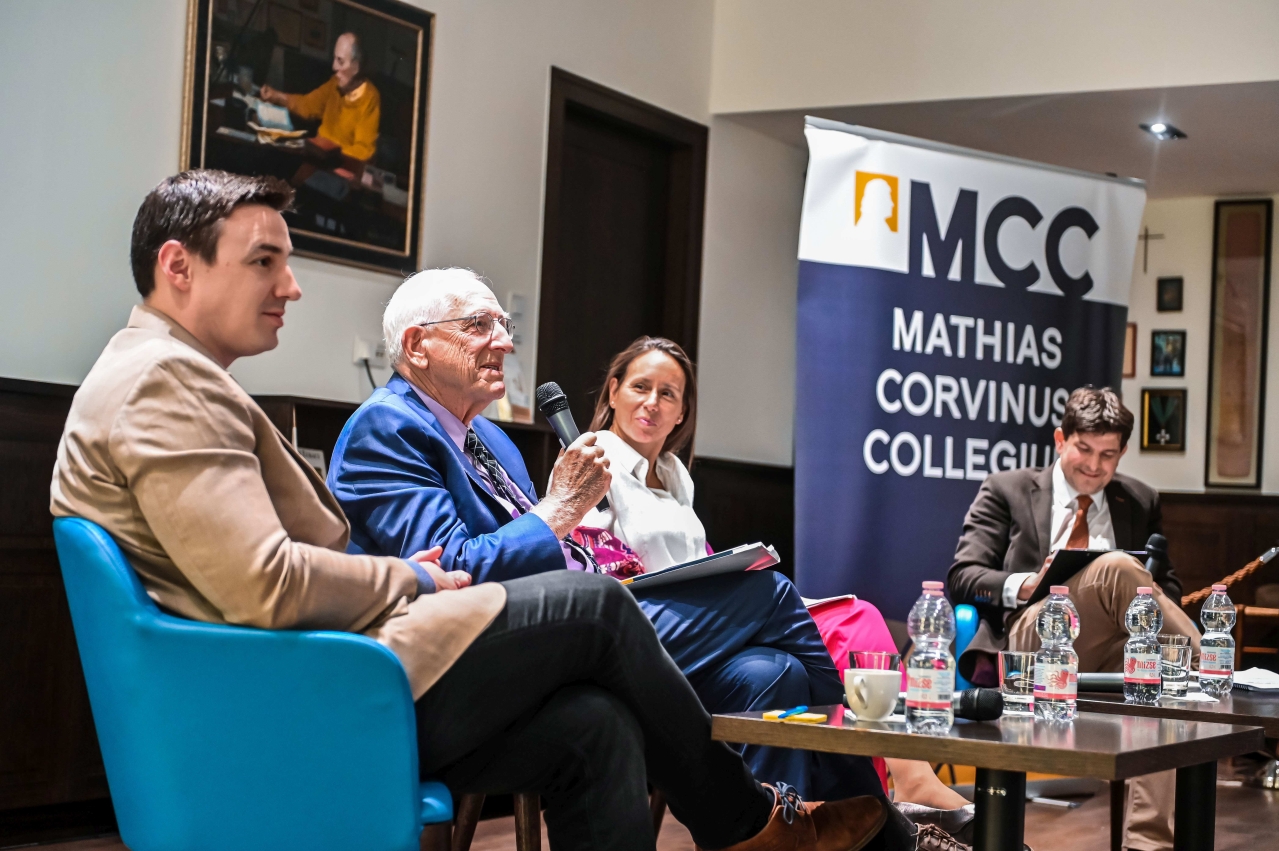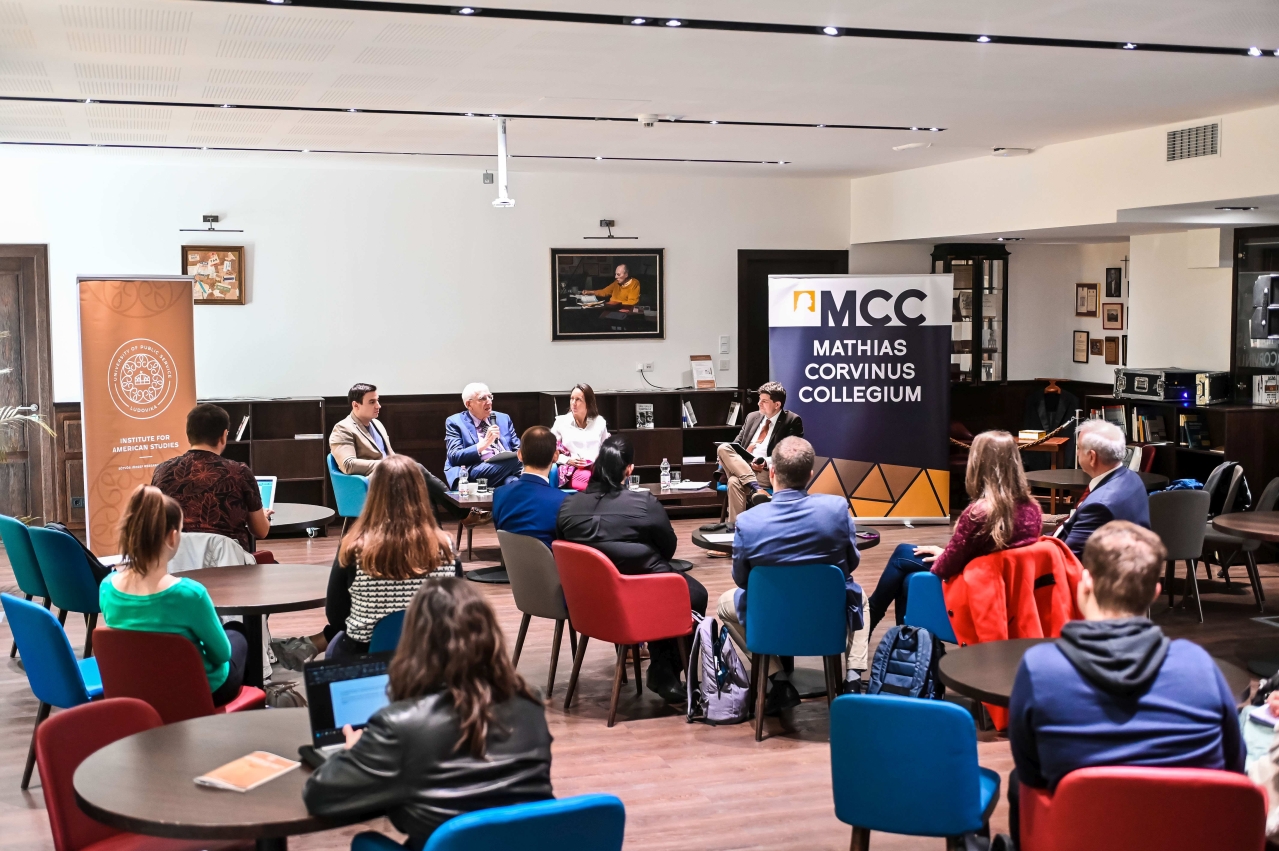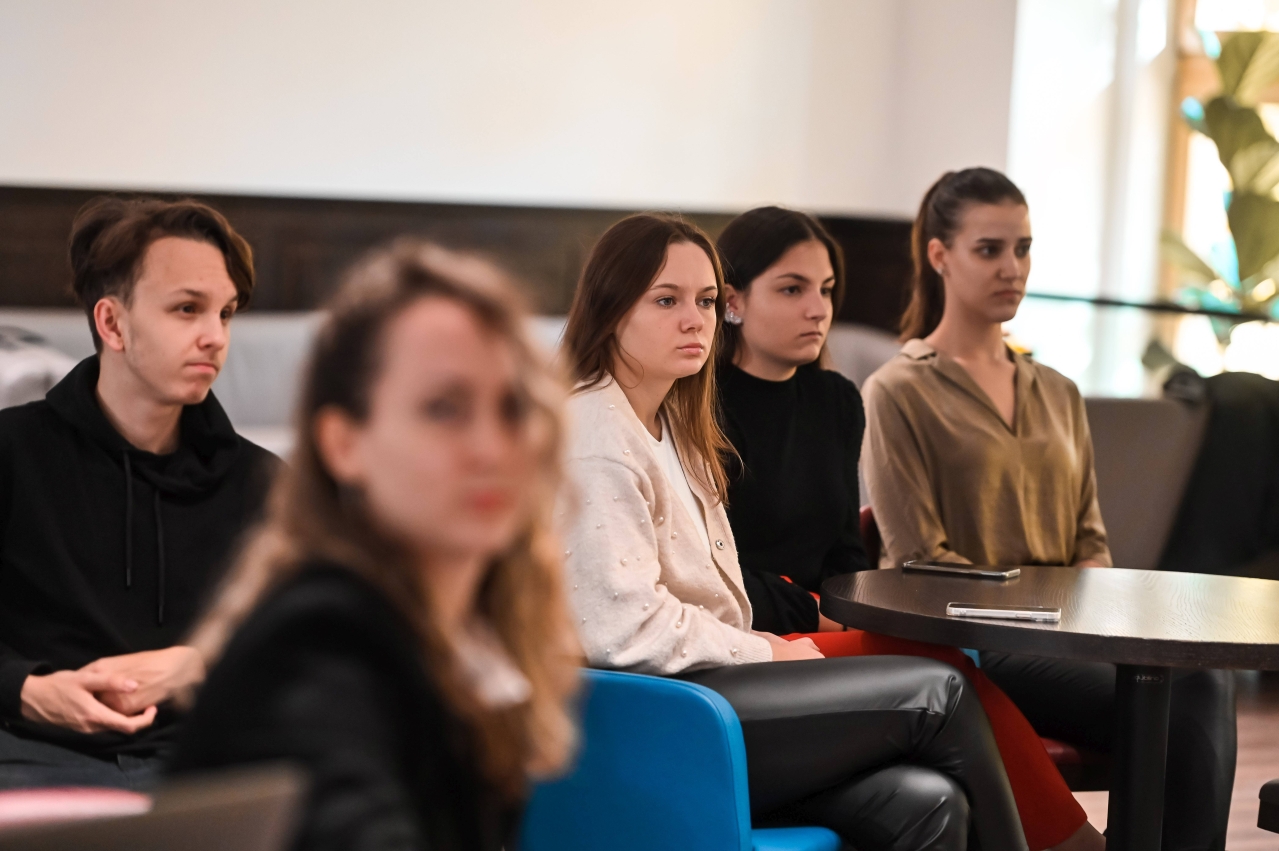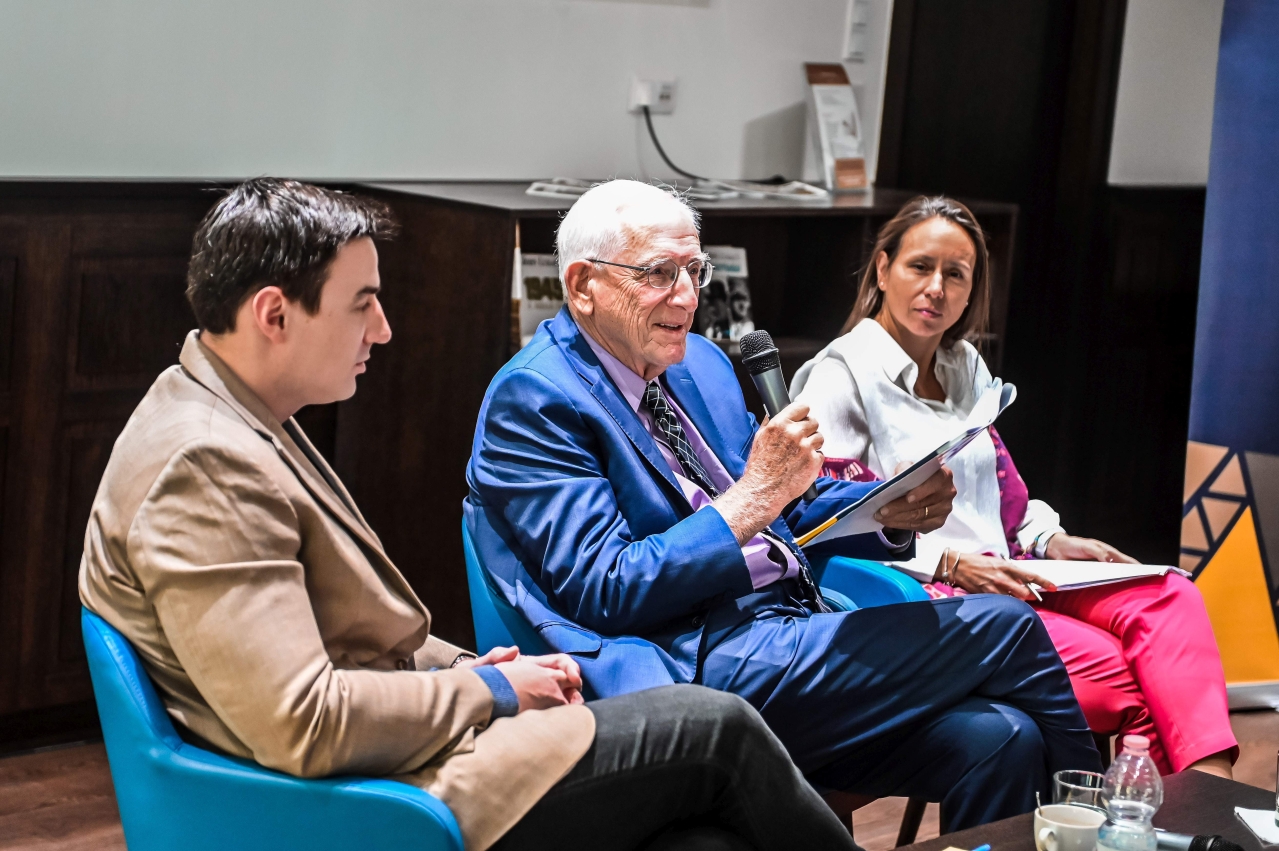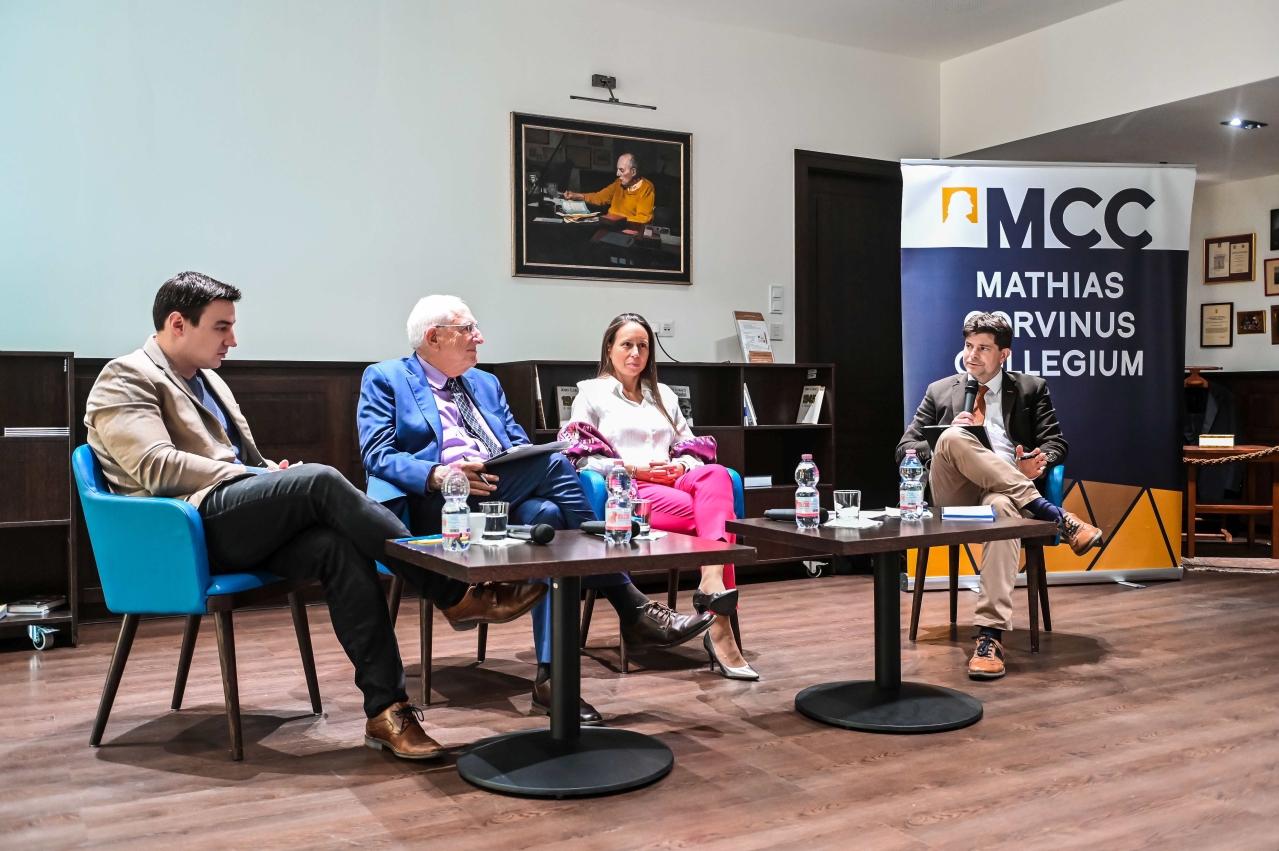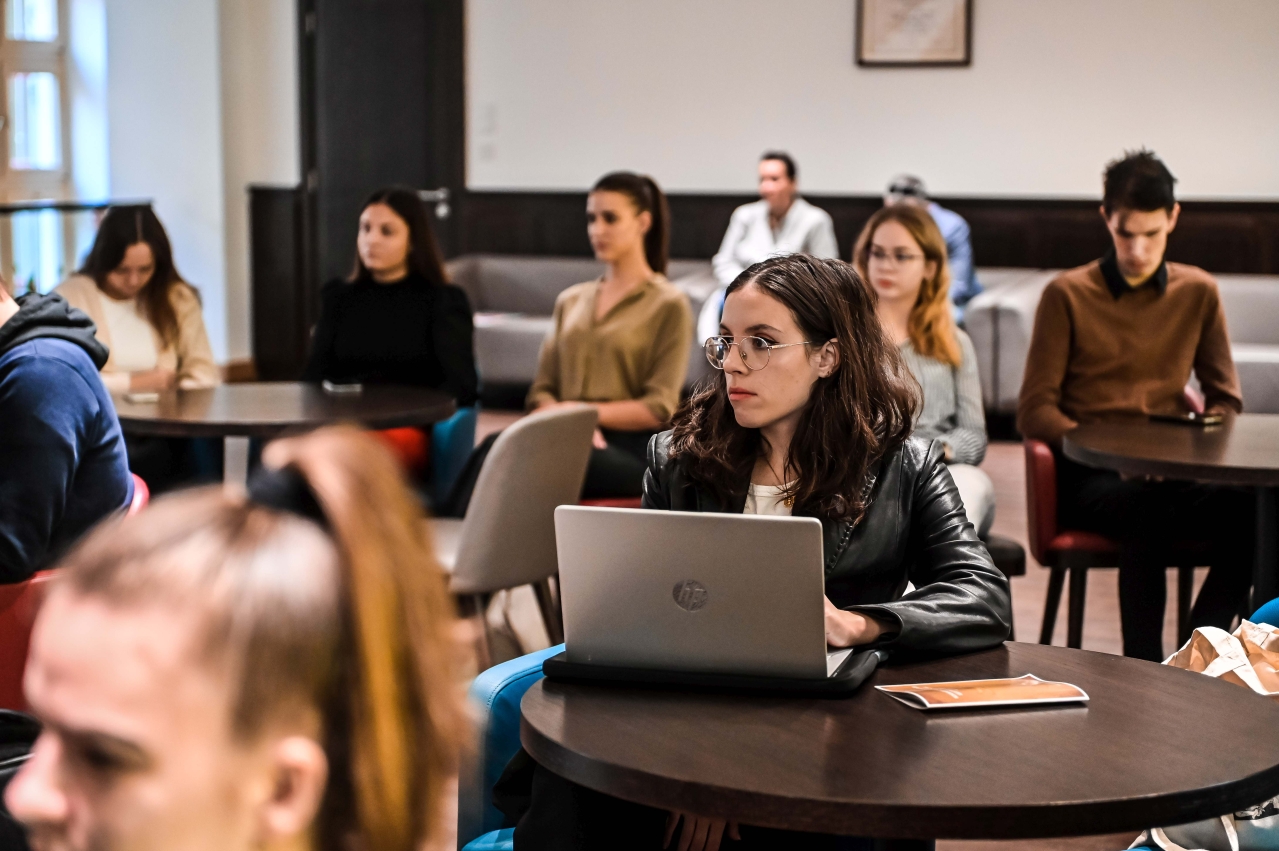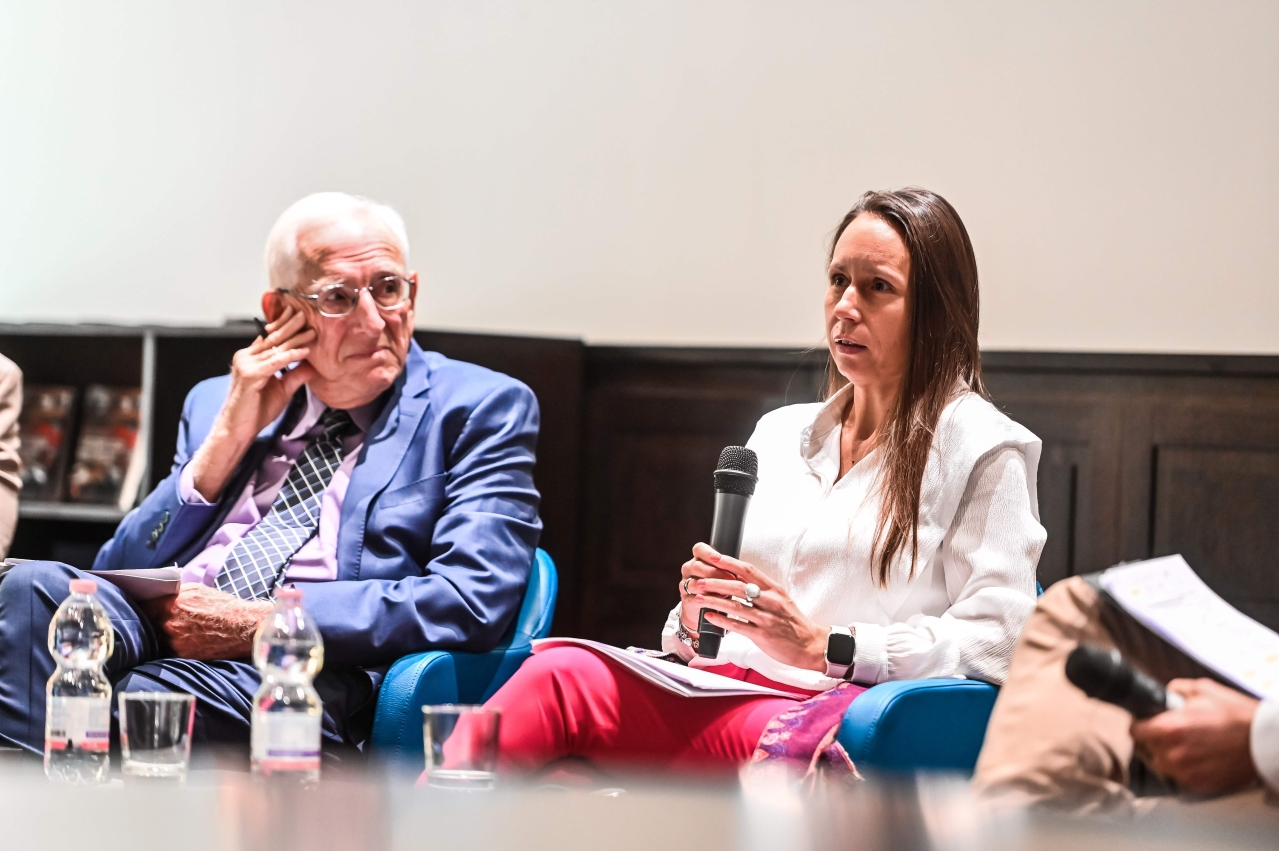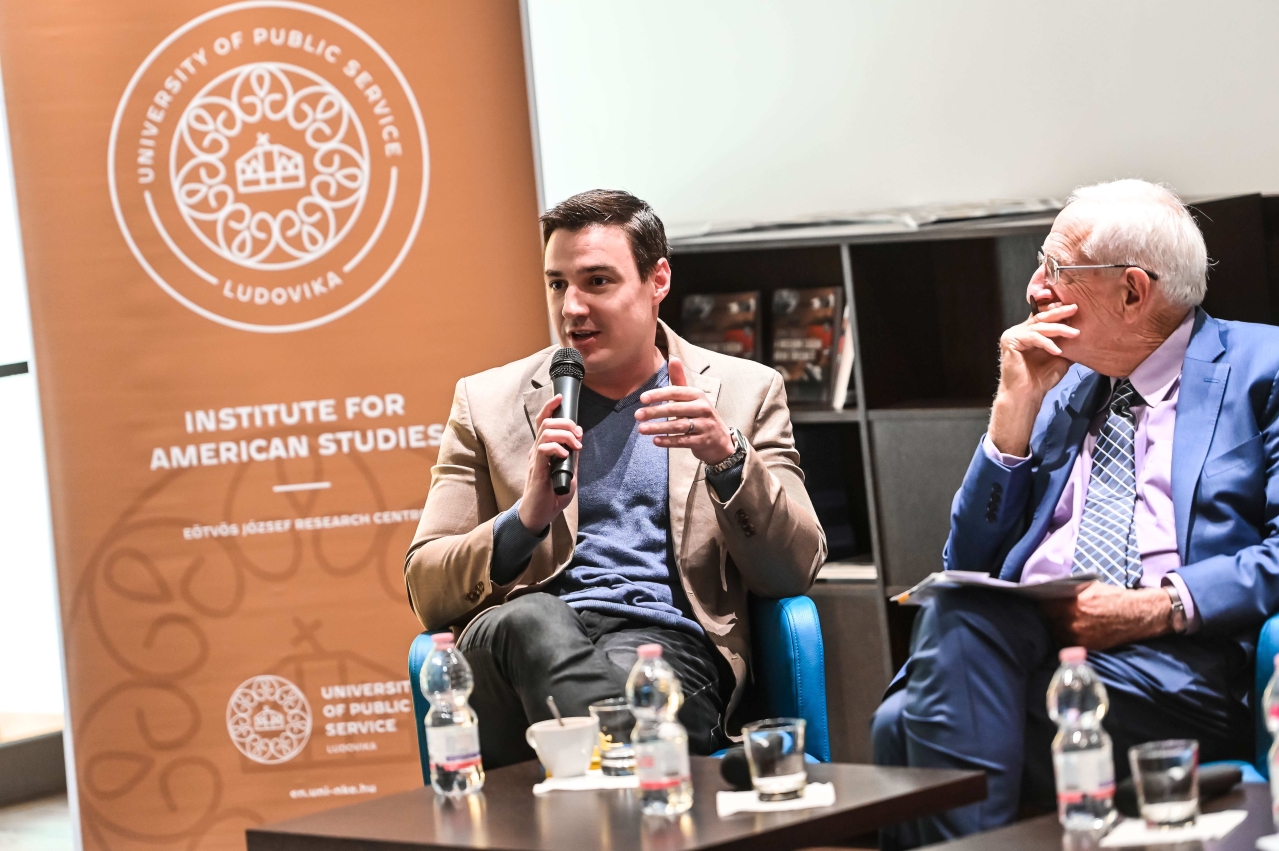Reading time: 3 minutes
What is the historical, geopolitical, and international legal background of the Russian-Ukrainian war? Who are the major players? What are their motivations? What is the stake and the way out of this conflict? A renowned professor of history from Stanford University exchanged ideas with Hungarian experts.
A panel discussion on “International Law and Beyond: Geopolitical Challenges of Central Europe” was organized jointly by the University of Public Service (UPS) and the Mathias Corvinus Collegium (MCC) with Norman Naimark, the Robert and Florence McDonnell Professor of Eastern European Studies at Stanford University, Réka Varga, Dean of the Faculty of Public Governance and International Studies and Balázs Mártonffy, Head of the Institute for American Studies of the University of Public Service. The discussion was moderated by Lénárd Sándor, Head of Center for International Law at the MCC. As a moderator, he defined the framework of the discussion that aimed to explore the historical, geopolitical and international legal background of the Ukrainian war and possible resolutions, emphasizing that the current war is not one of many conflicts but signals a dramatic departure from the recent past both in Europe but also globally.
Regarding the historical background, Norman Naimark pointed out that the ideological background of the war has been constantly present in Russian thinking in recent times, but its origins have much deeper roots. The Russian Empire cannot exist without Ukraine, so the Ukrainians do not have their own nation and do not deserve to be independent of Moscow. The American history professor also emphasized that Ukraine is too big and important for NATO to ignore its fate. Thus, it is also possible that a new Iron Curtain will be erected between Russia and Europe.
Réka Varga analyzed the international legal aspects of the war. She emphasized that international law provides a framework for the relations between nations in times of war and peace. According to international law. Russia had no right to use force, even though Putin tried to couch arguments in international legal terms. The Dean also emphasized that as long as leaders refer to international law, they actually recognize it, which is definitely good news. In relation to the war, another important question is what the reaction of the international community was. They of course condemned it, but this position is weakened by the fact that these rules have been violated in the past by other states. The Dean also highlighted that, in practice, it is mainly the individual states to decide what they want to do, and then they try to shape it according to the framework of international law. The West now does not want to be involved directly in the war.
Balázs Mártonffy emphasized that identity and international law are important, but the real question is what forces drive the processes deep down. Russia found itself on the losing side of the Cold War, and this, at least according to Putin, is bad. He would have seen as an even more serious loss to let Ukraine go to NATO. But at the same time, the war that broke out seriously violates the rules of the game. The USA now wants the member states of the UN to take a clear position on the issue. But until China and India clearly condemn Russian aggression, there is an interregnum in the world order. According to Mártonffy, a new kind of Cold War environment could emerge again and only the economic and other advantages of globalization can offer counterbalance.
Professor Naimark finally emphasized that Central Europe — whatever the outcome of the war will be — is already affected by this conflict, since two million Ukrainians now live in Poland and refugees are continuously arriving in Hungary and elsewhere. This war is such a terrible tragedy that not only Europeans but also Americans are worried about.
